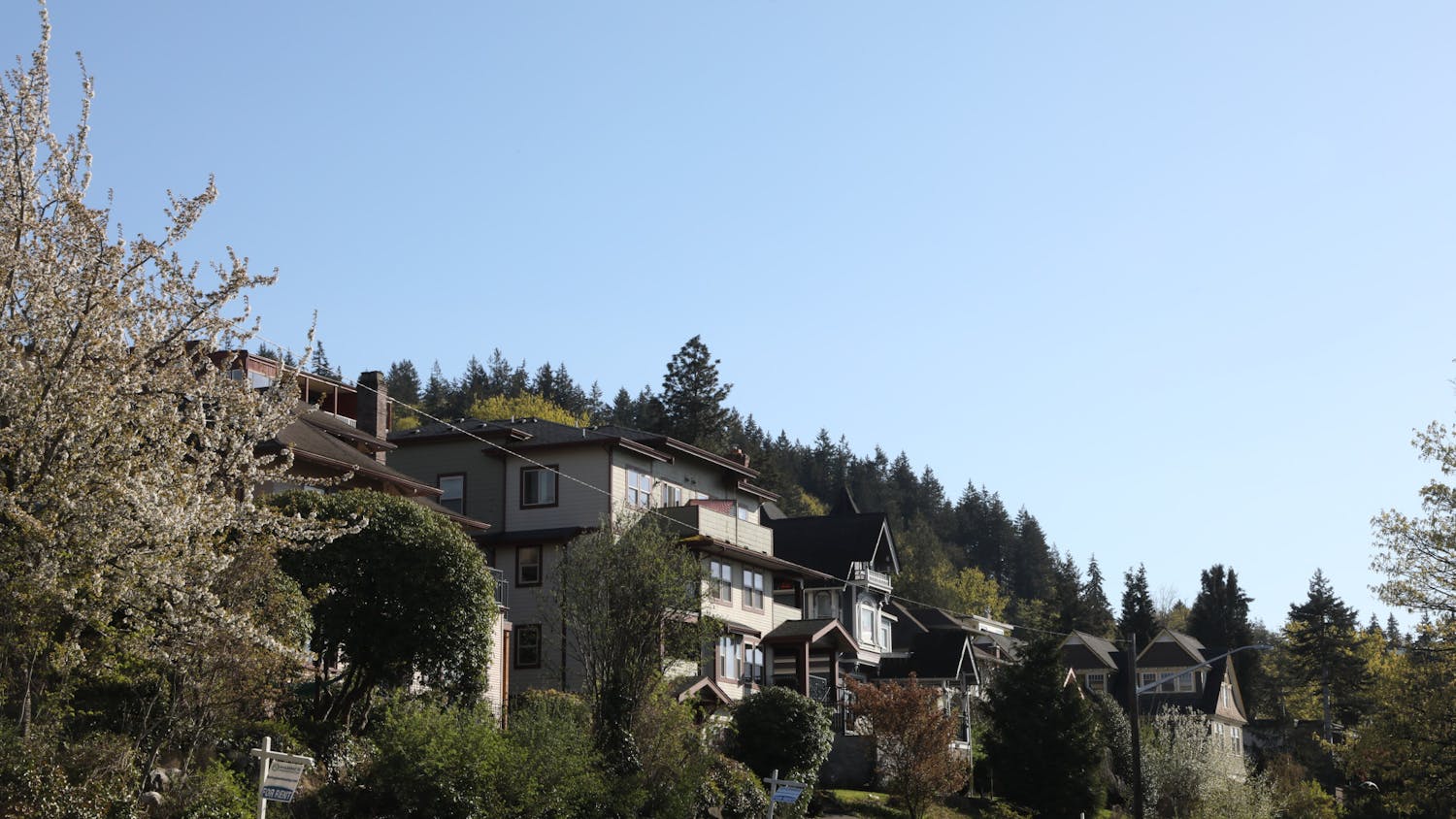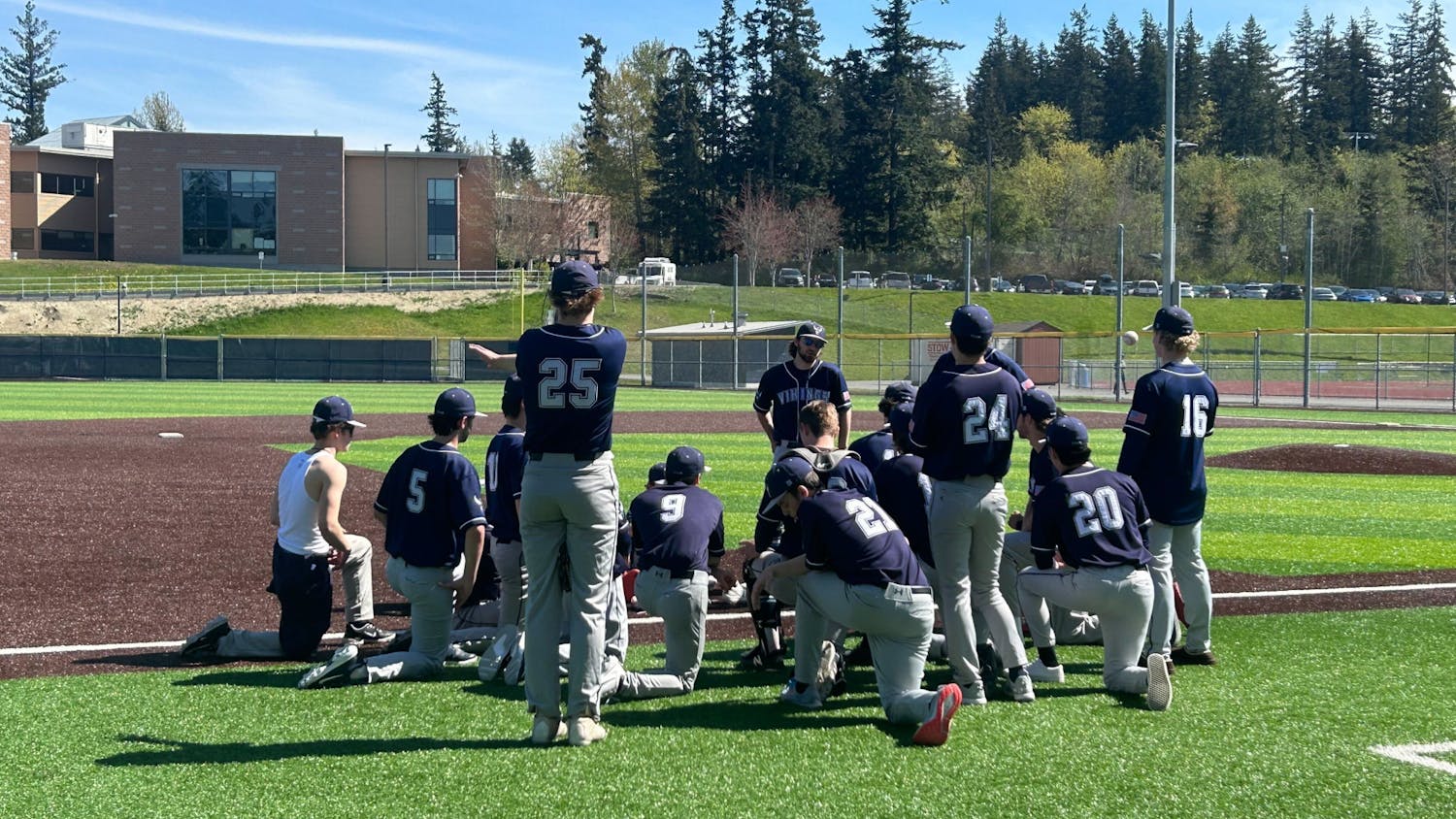Darrel Hillaire, executive director of CSSP, smiles while fishing in 2018. // Photo Courtesy of Jon Carroll at Children of the Setting Sun
Chris Johansen
“That’s really what got me going with telling our side of the story, what’s not written about the hearts and minds of our people,” Darrell said. “I have been doing that ever since.” The CSSP exists to keep the Hillaire family and Lummi culture alive and to share the stories of their land, resources, veterans, communities and organizations, according to Candice Wilson, board member of CSSP from Lummi Nation. “We do this through the teachings of our elders and our ancestors with and for our relatives,” she said. “Most importantly, for the next seven generations, what we hand down to our children and our grandchildren is what they will hand down to theirs.” One of CSSP’s most recent short films, “Salmon People,” tells the stories of the Coast Salish Peoples of Lummi and the salmon that they rely on. Sharing the knowledge that is held in Coast Salish communities, this short film details the importance of salmon to the land and its people, according to Jon Carroll, filmmaker for the CSSP and fourth-year student at Western majoring in documentary filmmaking. This film details the rich red and pink colors of the sockeye and chum salmon. It also includes the dances and ceremonies of the Coast Salish people and the vibrant landscapes they lived on for generations. “I am able to support this work by being behind the camera and supporting storytellers to tell their own stories with their own pacing and their own voice,” Carroll said. “That’s the spirit of the work, especially this reciprocity and this giving nature that I have seen time and time again at Lummi. The practice of reciprocity is key to all of this work.” Using this medium as a tool for sharing stories works to break down the barriers and perceptions people may have of Native American and Lummi Nation histories. “Nobody can tell our story better than ourselves,” Wilson said. Reciprocity is an important aspect of the CSSP and of Lummi Nation. Reciprocity is the culture of gratitude, it’s the connection between the people to the salmon and to the river, Darrell said. The CSSP gives thanks to the trees, all living things and the abundance of the land. They believe that wealth is the amount that one can give and not the number of things that one has, according to Darrell. One of Darrell’s main goals for the CSSP is to create a legacy of history and storytelling to pass on to his family and future generations to come. Joshua Hillaire, grandson of Darrell Hillaire, is already taking those steps to help pass on that legacy. “To me, it’s about spreading awareness,” Joshua said. “I have always been big on spreading awareness, whether it be certain fishing rights, or history of the tribes and sharing our way of thinking. It’s different than the outside world because no one is really used to our way of thinking. There’s just not that many Native Americans, it’s a different perspective.” Breaking down the misconceptions of Native American culture and the stories that have been told about their culture is what the CSSP strives to accomplish through their crisp film work, dance choreography, and true storytelling, according to Darrell. “I want to create the perception that we can do this and start practicing the old ways that didn’t have boundaries,” Darrell said. The CSSP is currently working on a documentary called “Tell The Truth.” The film will cover the tragic effects of opioid addictions throughout the country, specifically in the Lummi, Snohomish and Skagit Reservations, according to the CSSP. The full length documentary looks at the fight against addiction. The documentary seeks to bring awareness instead of blame and to communicate the strengths of tribal communities, according the CSSP. The CSSP’s work with multimedia as a tool to tell stories is not only about a legacy, but about showing the hearts and minds of Lummi Nation. “I think you dream it and you create energy around doing more, and the next thing you know, things start attracting themselves,” Darrell said.





